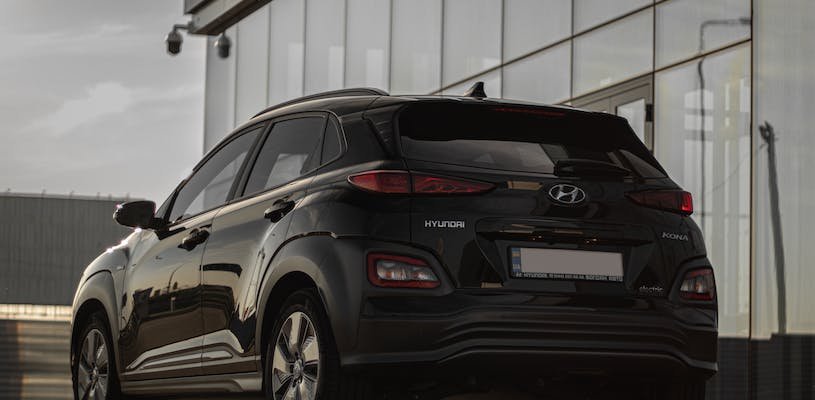
Hybrid or electric? It’s a dilemma that many families and business owners are faced with, particularly with a ban on new petrol and diesel vehicles on the horizon. Having a green and fossil fuel free form of transport is essential.
Are you a business owner who regularly travels across the UK? Or do you need a car with plenty of space to store your groceries in while having plenty of space for your children to sit in? Knowing what you want from your next vehicle is key so that you have a van or car that fits your daily needs.
Our guide aims to provide you with the information you need to make an informed decision on whether to choose an electric or hybrid vehicle.
What is a Hybrid Vehicle?
Hybrid vehicles use different power sources to propel a vehicle, such as a petrol-powered internal combustion engine and an electric motor. The two most common types of hybrid vehicles available are a plug-in hybrid (PHEV) and a self-charging hybrid (HEV).
With a plug-in hybrid, you can plug it into an electric charger to charge the battery, giving you the option to drive on electric power for short distances, without using more petrol. Self-charging hybrids use the internal combustion engine to charge the batteries as you drive. It means that you don’t have to worry about plugging the vehicle into an electric charging port to charge it.
What is an Electric Vehicle?
Electric vehicles on the other hand, are powered by electricity, rather than conventional fuel sources, such as petrol and diesel. With an electric car or van, it uses an electric motor that’s powered from a fuel cell or battery to provide drive.
There are two different types of power that come with electric vehicles, a single motor and dual motor. With a single motor EV, the vehicle only has one motor, which powers the front or rear wheels and is connected by a single-speed transmission. The differential then distributes the power to the wheels, providing the propulsion for the EV.
Dual motor EVs have two motors, one motor for the rear wheels and the other motor for the front wheels. The power is then distributed to the front and rear axles of the vehicle, as of when its required. To recharge an EV, simply charge the vehicle at home or at your nearest EV charging point.
How Do Electric Vehicles Work?
Electric vehicles work by using the energy stored in a battery, which is fed into one or more electric motors.
With a normal car or van, which has an internal combustion engine and gearbox to provide drive, electric vehicles from an engineering standpoint, are easier to use. They don’t have a gearbox, which means that they drive just like automatics, except that they’re not technically.
Also, EVs have little-to-no engine noise, which can take some getting used to, particularly if it’s your first EV that you’ve owned.
How do Hybrid Vehicles Work?
Hybrid vehicles use a combination of an internal combustion engine and one or more electric motors to power your car or van.
The two power sources can be used either individually or together, depending on how you drive the vehicle. As there are different types of hybrid vehicles available, they all work differently to one another.
When it comes to how a hybrid works, the ICE is used to power the vehicle on long-distance journeys, while the electric motor or battery is used for shorter trips, particularly in urban environments.
What to Consider When Choosing a Hybrid or Electric Vehicle
Before you buy your hybrid or electric vehicle, there are a few things that you need to think about. Taking these things into consideration will ensure that you have the right van or car to use as your daily drive.
Budget
Having a good idea of how much you are willing to spend on your new hybrid or electric vehicle is important.
Are you looking to spend a lot of money upgrading your current car for a high-performance EV? Or do you want a hybrid that’s affordable and can be used for family trips across the UK? Answering these questions is essential for ensuring you get the right vehicle, whether that’s the Toyota Prius or Hyundai Kona.
Range
While range anxiety is becoming less of an issue for EVs as manufacturers continue to develop batteries that can make it capable of long-distance driving.
As hybrids combine petrol and electric power together, it means that you can use the ICE to continue powering the vehicle while the battery is charging. If you are a business owner who wants an environmentally friendly fleet of vans to reduce your carbon emissions, then consider buying the diesel hybrid Ford Transit.
Get ULEZ Ready with Your New Car or Van with Nationwide Cars
Nationwide Cars offers a wide range of electric and hybrid vehicles that are compliant with London’s ULEZ zone and Clean Air Zones across the UK. Our friendly sales team will answer any questions you may have for upgrading your current vehicle for a hybrid or electric one. Contact our team today and we can make sure that you have the right car or van for personal or business use.
Live in London and are thinking about upgrading your current non-ULEZ car or van? Our article explores why you should upgrade to a ULEZ-compliant vehicle.


